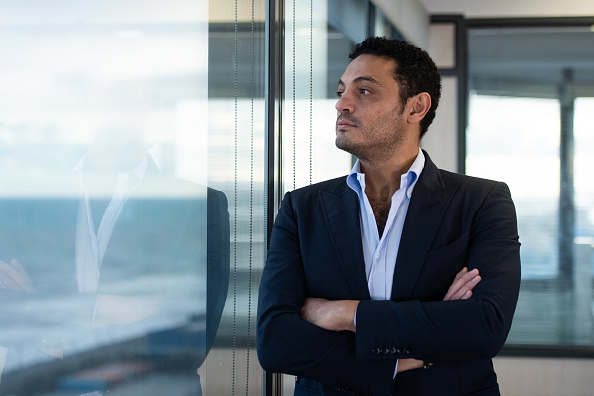
Egypt court sentences dissident in absentia for tax evasion

An Egyptian court sentenced in absentia a businessman and dissident to five years in jail for tax evasion.
Mohamed Ali – who took refuge in Spain – had posted online a series of videos that went gone viral accusing the country’s elite, including President Abdul Fattah el-Sisi, of rampant corruption.
He urged Egyptians to take the streets in protest in September, prompting rare signs of public dissent against President el-Sisi.
Ali was also ordered by the court to pay around 42 million Egyptian pounds (about $2,600,000), after his company, Amlak, failed to settle a dispute with the government over taxes owed between October 2012 and September 2016.
Additionally, the businessman was fined 50,000 Egyptian pounds ($3,100).
In the videos, the entrepreneur alleged large-scale misuse of public funds in the building of luxurious hotels, presidential palaces and a tomb for President Abdel-Fattah el-Sisi’s mother, who died in 2014.
Hashtags with his name trended for days as he addressed millions of Egyptians using his cellphone while sitting in a closed office in an unknown location in Europe.
El-Sisi dismissed the allegations against him and the country’s military as “sheer lies and defamation”.
Sisi characterized Ali’s videos as an attempt to weaken Egypt and undermine the public’s trust and confidence in the military and its leader.
Ali claimed he left Egypt while the military owed him 220 million Egyptian pounds (about $13.6 million) for services he provided. He did not offer proof to validate his allegations.
El-Sisi, who became president in 2014, said the military has overseen road projects costing 175 billion pounds, or just over $1 billion, and that his government has carried out projects worth more than $245 billion. He said he would inaugurate 14 new cities in 2020.
Critics argue that the costs of such infrastructure projects, like the Suez Canal expansion and the new capital, would have been better spent on rebuilding the struggling economy and improving health and education.






